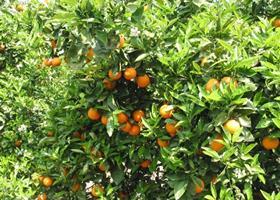
The acceptance of in-transit cold treatment for South African fruit shipments to India by the Indian authorities is imminent, according to news emanating from India, where a delegation from Fruit South Africa has been visiting New Delhi and Mumbai this week.
The Citrus Growers’ Association (CGA) said exports to India have been constrained by a requirement that does not allow in-transit cold treatment.
“After two successful pilot shipments of both pears and oranges, the final acceptance to allow in-transit cold treatment is imminent,” said the CGA. “Apple and grapefruit trial shipments have also been conducted, and once two such trials have been successfully cleared, they to could be granted clearance for in-transit treatment.”
The CGA noted that this should promote an increase in citrus exports to India. Indian mango and table grape access to the South African market is also expected to be concluded in the near future.
According to the CGA, the other trade inhibitor is the high tariffs charged on fruit imports into India. “For years now, South Africa (and the SADEC partners) have been in discussions regarding a Preferential Trade Agreement (PTA). Embassy officials expressed the view that the upcoming BRICS Summit in South Africa in mid-2018 may give some impetus to these ongoing discussions.”
Meanwhile, after a poor year in 2016, largely as a result of the drought-affected drop in the South African Valencia crop, shipments bounced back in 2017 to a record export volume to India, albeit a small increase on the 2015 volume. According to the CGA the vast majority of South African citrus shipments to India are Valencias.
“What is noticeable is that the 2017 season included all the citrus sectors, although the volumes of all other sectors were well short of the Valencia volumes,' the CGA confirmed. 'Given the factors that are beneficial for fruit exports to India, namely a large population, a rising middle class and a vegetarian culture, the volumes are way short of the potential. Many feel that solving the in-transit treatment issue will result in increased volumes.”



